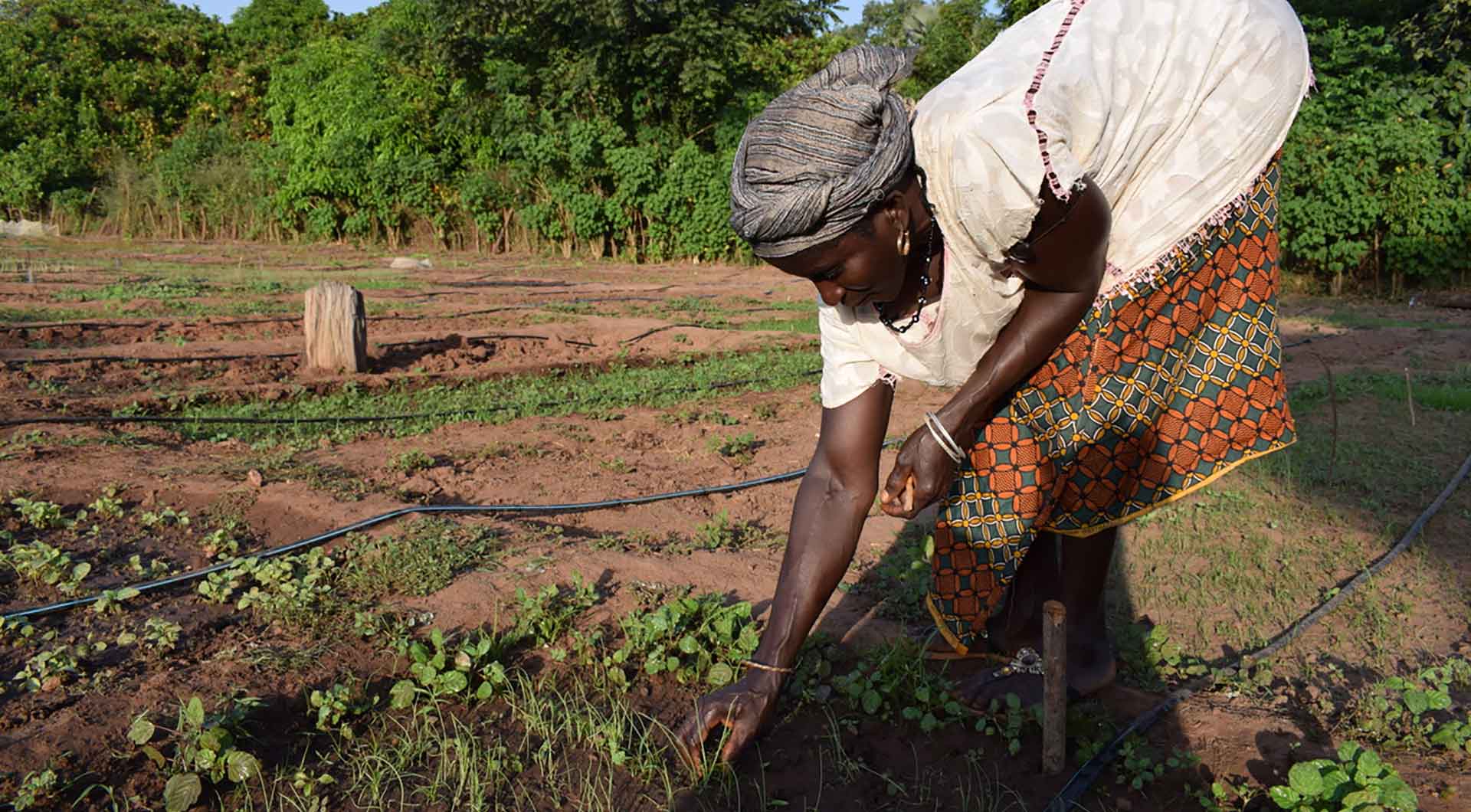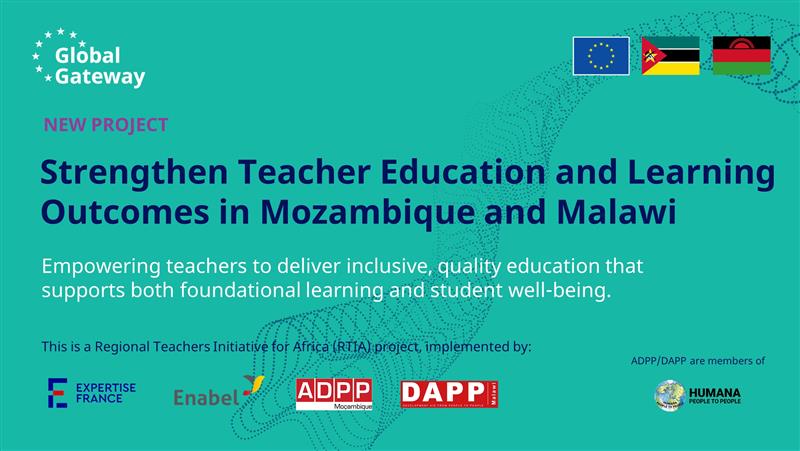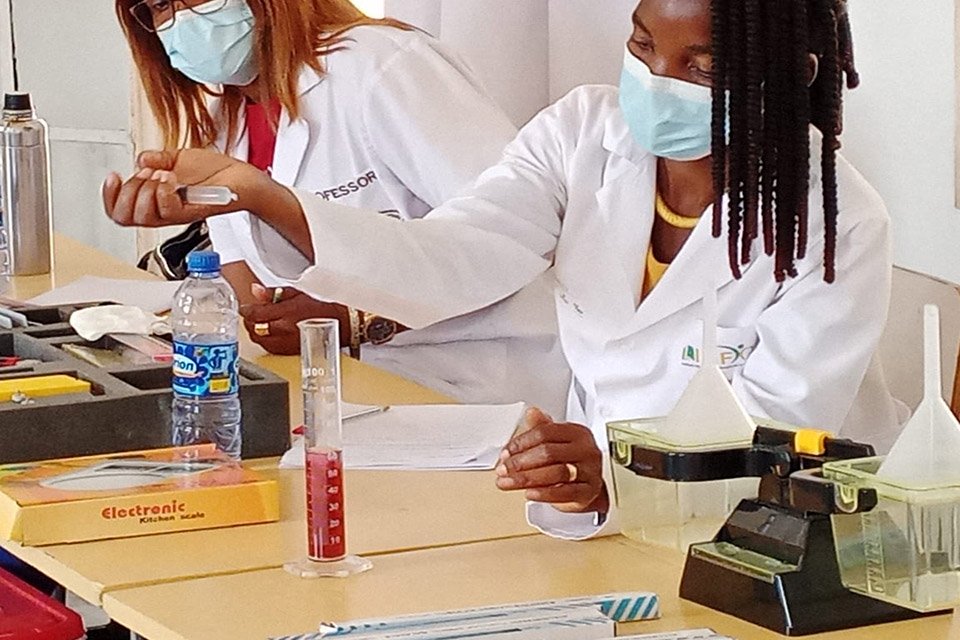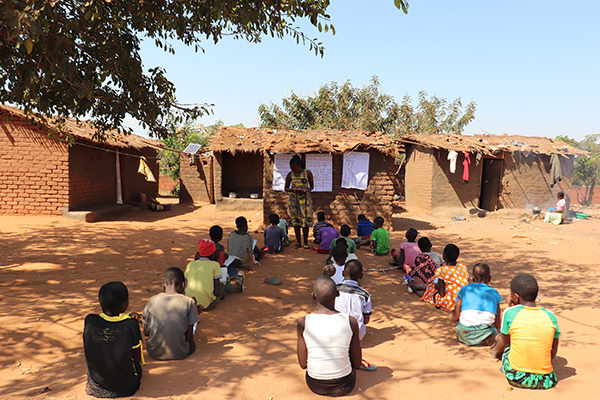
Two new education initiatives have been launched in Mozambique and Malawi under the European Union’s Regional Teachers’ Initiative for Africa (RTIA) Facility Programme, aiming to address the critical shortage of qualified teachers in Sub-Saharan Africa. Led by ADPP Mozambique and DAPP Malawi, members of the Humana People to People, network, the projects are designed to empower educators to deliver inclusive, quality education that supports both foundational learning and student well-being in challenging environments.

“We are honoured to be part of the Regional Teachers’ Initiative for Africa (RTIA) Facility Programme, which is playing a vital role in transforming education systems across the continent,” said Snorre Westgaard, Chairman at Humana People to People. “Through our teacher training work, we aim to ensure that even in the most challenging contexts, every child has access to a qualified, motivated, and resilient teacher. By equipping educators with innovative, context-specific tools, we are helping build inclusive, crisis-ready education systems that leave no one behind.”
Mozambique: Supporting Teachers in Crisis Contexts
In Zambézia Province, ADPP Mozambique is implementing the project “Enhancing Teachers Resilience and Well-being in Disaster-Prone Areas of Mozambique”, with the support of Expertise France. Operating in the districts of Nicoadala, Namacurra, and Mocuba, the initiative focuses on improving teacher retention, strengthening professional development, and supporting the emotional well-being of educators working in disaster-prone areas.
The project will directly benefit 900 in-service primary school teachers across 60 schools, along with 320 pre-service teachers from the Teacher Training Institutes in Macuse and Nicoadala. In total, the initiative is expected to reach approximately 48,000 students, by equipping teachers with the tools and support needed to continue delivering quality education in times of crisis.
Running through November 2026, the project is implemented in collaboration with the Ministry of Education and Human Development (MINEDH), the National Institute for Disaster Management (INGD), and local health and social services (SDSMAS). Teachers will receive disaster-adapted pedagogical training, psychosocial support strategies, and access to digital learning tools, while schools will establish disaster risk management committees and engage in community outreach to ensure continuity of education during emergencies.
Malawi: Upscaling Child-Centred Teaching
In Dowa District, DAPP Malawi has launched the project “Upscaling Child-Centred Teaching in Malawi,” co-implemented with Enabel. The two-year initiative will strengthen teaching quality and promote inclusive, child-centred learning in public primary schools across Dowa District. The project will address the high teacher-to-student ratios by introducing an innovative system, called “TRIO”, that organise pupils into small teams of three to foster peer learning, mutual support and active classroom engagement both inside and outside the classroom.
The project also builds the capacity of head teachers, school inspectors, and Primary Education Advisors (PEAs), while engaging Parent-Teacher Associations (PTAs), Mother Groups, and School Management Committees to promote strong community ownership and sustainability.
A Shared Vision for Transformative Education
Both initiatives reflect the shared mission of Humana People to People, a network of 29 local NGOs committed to sustainable development and inclusive education across Sub-Saharan Africa, the Americas, and Asia to which both organisations belong.
Since the opening of the first teacher training college in Maputo, Mozambique, in 1993, Humana has remained committed to reducing the shortage of qualified teachers in primary education, particularly in rural areas. Its ultimate mission is to ensure that every child is taught by a qualified, motivated, and empowered teacher. Today, the network includes 55 teacher training colleges across Sub-Saharan Africa and India.


